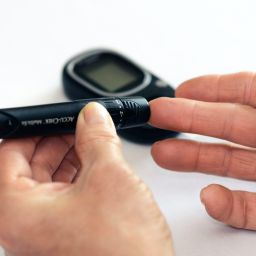A professor at Kings College London claims that weight-loss surgery can cure half of patients with type-2 diabetes, for at least five years, following a trial on 60 people, published in the Lancet.
The trial found none of those with type 2 had been cured by medication and diet alone but, reported the BBC, the surgery improved symptoms both through weight loss and by changing the way the gut functions.
Some experts said the results were ‘remarkable’ and that too few people were getting access to the surgery. Others have debunked Francesco Rubino’s study.
But is surgery necessary for weight loss? No, says the National Council for Hypnotherapy (NCH) in the UK.
The NCH, with 1800 qualified and experienced hypnotherapists on its directory across the UK, says hypnotherapy has a proven track record in helping people manage weight through creating healthy self-management techniques by changing negative habits.
Managing weight loss is one of the most effective results of hypnotherapy. And it is long term as, rather than just reducing calories that you are likely to put on again in the longer term, hypnosis gets a person in touch with the reasons for unconsciously eating.
Prof Rubino’s teams, at King’s College London and the Universita Cattolica in Rome, compared standard drug therapy with surgery to rewire the digestive tract.
The operations reduced the size of the stomach and left less of the intestines exposed to food. He said: “Surgery is able to produce prolonged remission in 50% of cases, patients get to levels of blood sugar that is non-diabetes for five years.
“However, 80% who had surgery were able to maintain ‘optimal control’ of blood sugar despite only taking one drug or nothing at all.”
While some of those patients still had type-2 diabetes, they were easily keeping their sugar levels to recommended levels. The patients who had surgery were also less likely to have heart problems, a common side-effect of uncontrolled diabetes, and reported improved quality of life.
Prof Rubino added: “Treating surgically, rather than medical therapy, appears more cost-effective, as there is less use of medication.”
The results were better two years after surgery. However, some patients relapsed in the past three years.
But, rather than undergo invasive surgery and fad diets, people who are overweight could try hypnotherapy first. And it can help with diabetes, too.
While there is no ‘one size fits all’ diet for people with diabetes, Douglas Twenefour, clinical advisor at Diabetes UK, said people need to control what they eat.
Despite Prof Rubino’s study, most doctors say the cause of diabetes is not in the gut but in the fat that surrounds it.
“Getting rid of that excess fat” is and has always been the key to treating diabetes, says Roger Unger, a leading diabetes expert at UT Southwestern Medical Centre in the United States.
Photo by Karolina Grabowska: https://www.pexels.com/photo/man-with-hamburger-getting-his-waist-measured-5714314/













